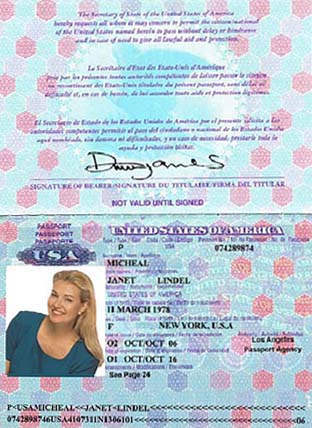
An advance-fee scam is a form of fraud and is one of the most common types of confidence tricks. The scam typically involves promising the victim a significant share of a large sum of money, in return for a small up-front payment, which the fraudster claims will be used to obtain the large sum. If a victim makes the payment, the fraudster either invents a series of further fees for the victim to pay or simply disappears.
Phone fraud, or more generally communications fraud, is the use of telecommunications products or services with the intention of illegally acquiring money from, or failing to pay, a telecommunication company or its customers.
Email fraud is intentional deception for either personal gain or to damage another individual using email as the vehicle. Almost as soon as email became widely used, it began to be used as a means to defraud people, just as telephony and paper mail were used by previous generations.
Charity fraud is the act of using deception to obtain money from people who believe they are donating to a charity. Often, individuals or groups will present false information claiming to be a charity or associated with one, and then ask potential donors for contributions to this non-existent charity. Charity fraud encompasses not only fictitious charities but also deceptive business practices. These deceitful acts by businesses may involve accepting donations without using the funds for their intended purposes or soliciting funds under false pretenses of need.

A romance scam is a confidence trick involving feigning romantic intentions towards a victim, gaining the victim's affection, and then using that goodwill to get the victim to send money to the scammer under false pretenses or to commit fraud against the victim. Fraudulent acts may involve access to the victim's money, bank accounts, credit cards, passports, e-mail accounts, or national identification numbers; or forcing the victims to commit financial fraud on their behalf.
Voice phishing, or vishing, is the use of telephony to conduct phishing attacks.
Telemarketing fraud is fraudulent selling conducted over the telephone. The term is also used for telephone fraud not involving selling.
An IRS impersonation scam is a class of telecommunications fraud and scam which targets American taxpayers by masquerading as Internal Revenue Service (IRS) collection officers. The scammers operate by placing disturbing official-sounding calls to unsuspecting citizens, threatening them with arrest and frozen assets if thousands of dollars are not paid immediately, usually via gift cards or money orders. According to the IRS, over 1,029,601 Americans have received threatening calls, and $29,100,604 has been reported lost to these call scams as of March 2016. The problem has been assigned to the Treasury Inspector General for Tax Administration. Studies highlight that most victims of these scams are aged 20-29 years old and women are more affected than men. One way to decrease the risks of an individual falling victim to IRS impersonation scams is through awareness programs.
AnyDesk is a remote desktop application distributed by AnyDesk Software GmbH. The proprietary software program provides platform-independent remote access to personal computers and other devices running the host application. It offers remote control, file transfer, and VPN functionality. AnyDesk is often used in technical support scams and other remote access scams.
Utility scams are fraudulent acts where a perpetrator calls or arrives unannounced at a utility customer's house in an attempt to take money or sell unnecessary energy accessories through misrepresentation. Often, the fraud involves telling the victim that he or she owes the utility company money and that their power, gas, or water will be shut off immediately unless payment is made.
A SIM swap scam is a type of account takeover fraud that generally targets a weakness in two-factor authentication and two-step verification in which the second factor or step is a text message (SMS) or call placed to a mobile telephone.

Kitboga is the Internet alias of an American Twitch streamer and YouTuber whose content primarily focuses on scam baiting against phone fraud. His channel has over 1 million followers on Twitch, and his YouTube channel has over 3 million subscribers.

Jim Browning is the Internet alias of a software engineer and YouTuber from Northern Ireland whose content focuses on scam baiting and investigating call centres engaging in fraudulent activities.
An SSA impersonation scam, or SSA scam, is a class of telecommunications fraud and scam which targets citizens of the United States by impersonating personnel of the Social Security Administration. SSA scams are typically initiated by pre-recorded messages, or robocalls, which are designed to panic the victim so that they follow the scammer's instructions. In 2018, over 35,000 incidences of SSA scam robocalls were reported to the Better Business Bureau, and the total losses of victims added up to over $10 million. It is believed that approximately 47% of Americans were subject to an SSA impersonation scam robocall during a three-month period in mid- to late 2020, and that 21% of seniors were targeted by at least three SSA scam robocalls in the same time period.
An overpayment scam, also known as a refund scam, is a type of confidence trick designed to prey upon victims' good faith. In the most basic form, an overpayment scam consists of a scammer claiming, falsely, to have sent a victim an excess amount of money. The scammer then attempts to convince the victim to return the difference between the sent amount and the intended amount. This scam can take a number of forms, including check overpayment scams and online refund scams.

A series of Molotov cocktail arson attacks and shootings took place in Russian military commissariat registration and enlistment offices following the start of the country's invasion of Ukraine in 2022. Other governmental buildings were also attacked in multiple regions of Russia. Part of the Russian partisan and anti-war movements, the attacks were spurred by several factors, including the invasion of Ukraine, the deployment of Russian conscripts to the front line, the start of spring conscription, and rumors about possible mobilization in the country, which were later found to be true.

Pro-democratic and pro-Ukrainian partisan movements have emerged in Belarus and Russia following the Russian invasion of Ukraine, a major escalation of the Russo-Ukrainian War. These resistance movements act against the authoritarian governments of Alexander Lukashenko in Belarus and Vladimir Putin in Russia, as well as against civilian supporters of these authorities and the armed forces of both countries, with the aim of stopping the war.
The rail war began in different regions of Russia in the spring of 2022 after a similar rail war in Belarus.
A pig butchering scam is a type of long-term scam and investment fraud in which the victim is gradually lured into making increasing contributions, usually in the form of cryptocurrency, to a fraudulent cryptocurrency scheme. They are commonplace on social apps, where, in October 2023, twelve percent of Americans using said apps had been victims, up from five percent in 2018. The scammer builds trust with the victim through online communication, subsequently persuading them to invest in a fraudulent cryptocurrency scheme. The "butchering" or "slaughtering" of the victim transpires when their assets or funds are stolen.






